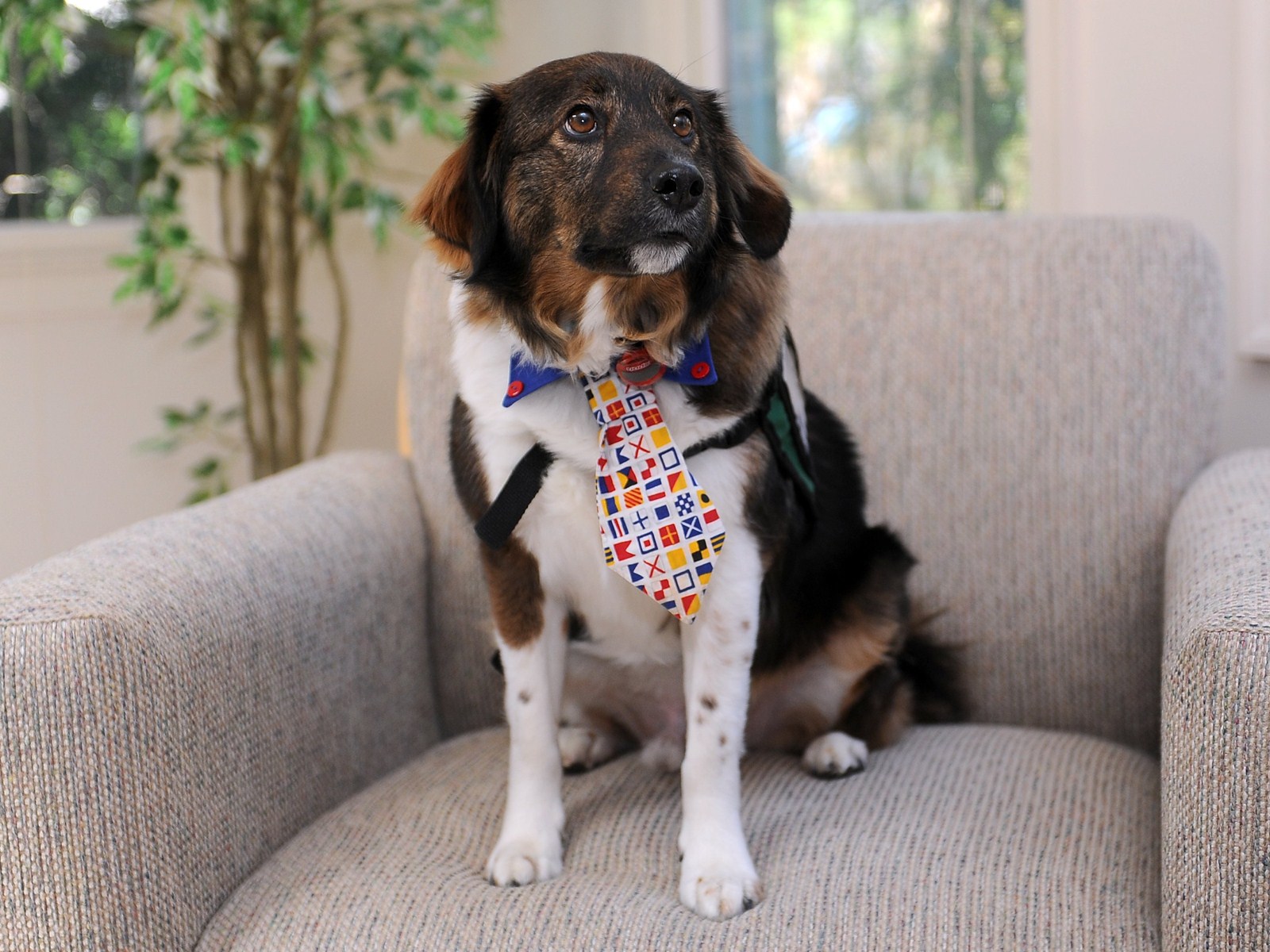Maverick finds
his true calling

While a loving home, regular long walks and maybe some squeaky toys are enough to keep the average canine content, Pam Goode's dog, Maverick, yearned for a greater purpose in life.
The collie-Australian shepherd mix was very insecure when Goode and her husband, Robert, adopted him in June 2014. That is, until he found his true calling: working as a pet therapy dog.
“The therapy training gave him a purpose, which gave him confidence,” Pam Goode said.
Maverick and Goode now visit Greater Baltimore Medical Center and Johns Hopkins Hospital about once a week, where patients find comfort and distraction in the friendly dog's presence. At Hopkins, children at the Adolescent Psychiatry Day Hospital gather around Maverick, showering him with hugs while Goode reads a picture book she wrote about the easy-going pup.
Goode understands firsthand the joy and comfort Maverick can bring. She and her husband adopted Maverick, who was rescued from a high-kill shelter in Kentucky, while grieving the death of their dog of 14 years.
Goode knew right away it would be a perfect match.
“His eyes were just these heavenly, doe-like eyes, and I said. ‘That's the dog I want,'?” she said.
When Maverick, now about 4
“He will play by himself and be very content,” Goode said.
Ultimately, Maverick's work as a pet therapy dog has benefited all parties involved, including Goode. The pair, who even have their own business cards, plan to celebrate on National Therapy Animal Day, April 30.
“I can continue doing my service work and I work with a dog who I love as well, so it's an ideal situation,” Goode said. “We're both getting rewards for it.”


 PREVIOUS ARTICLE
PREVIOUS ARTICLE
